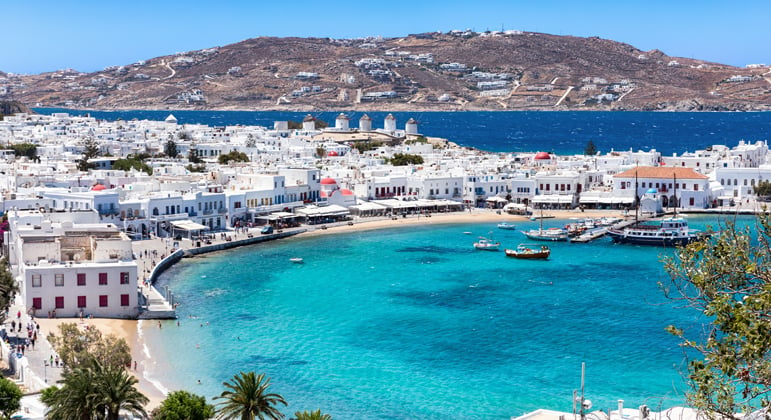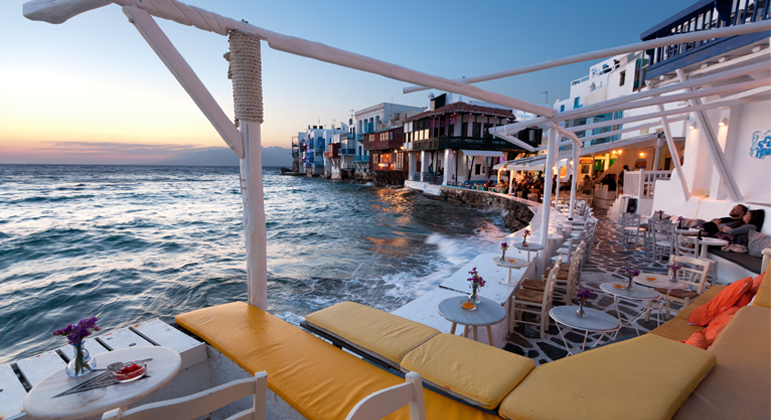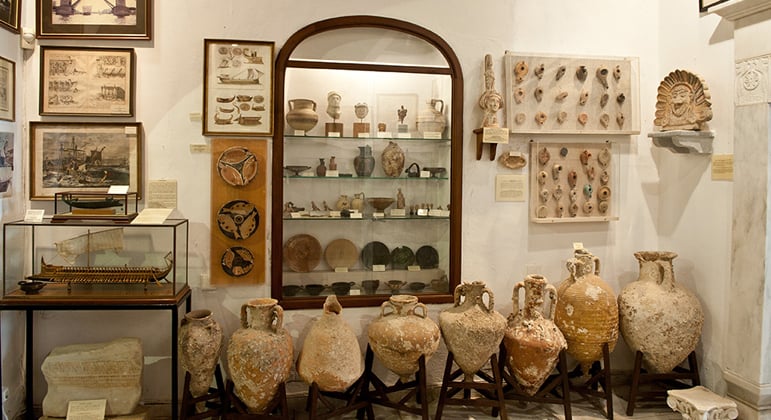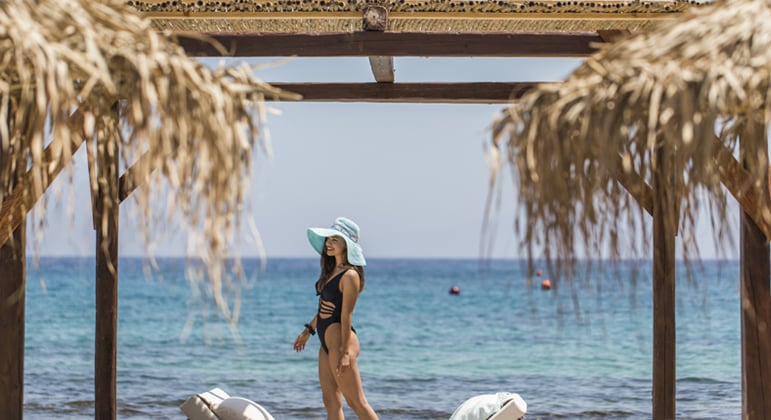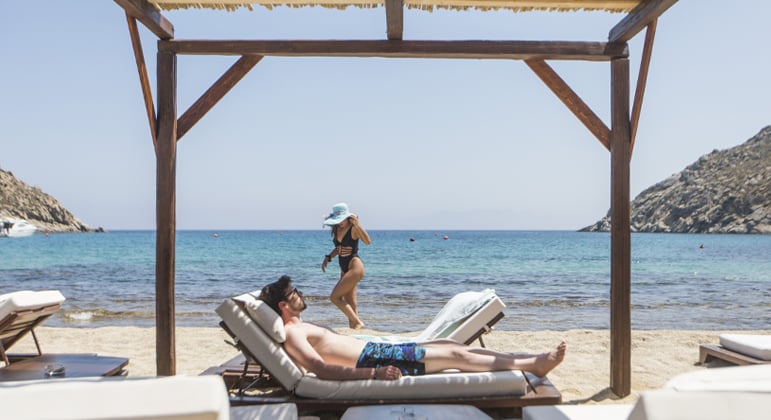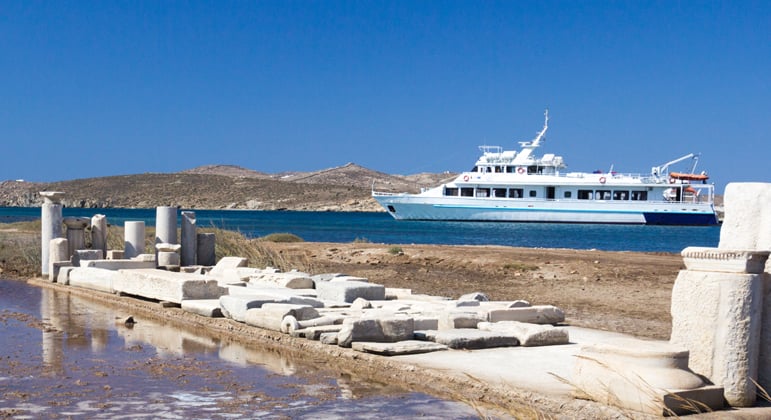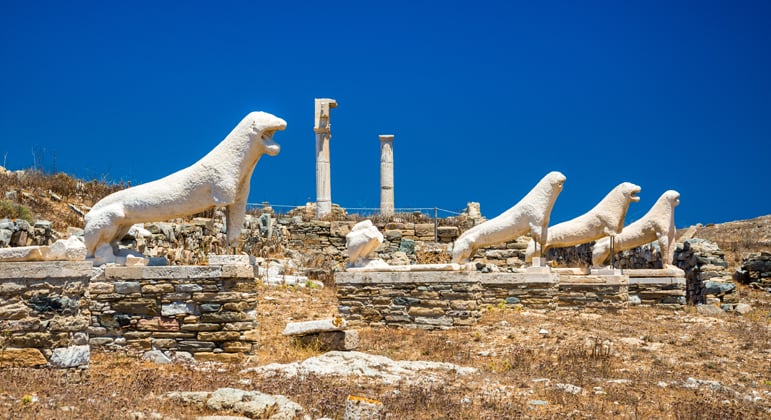Greek Island Glamour Of Mykonos
There is no Greek island more synonymous with carefree times, glitz and glamour than Mykonos. At just 85 square kilometers Mykonos is a small island but it’s one that positively crackles with excitement, especially in the long Greek summer. Mykonos has a very rocky terrain and its windiness (the meltemia) can sometimes surprise you, but you’ll also find some of the most amazing beaches around and a cosmopolitan vibe you simply won’t find anywhere else. The main town, Chora, is famous for its winding lanes lined with gleaming white cubiform houses with painted blue doors and sophisticated shops and restaurants, but beyond the town, Mykonos retains a refreshingly bucolic atmosphere. In fact, Nikos Kazantzakis, author of Zorba the Greek, once wrote that “Mykonos is wonderful…the air, the earth, the dry mountain, the simple people, their dialect, the figs, the grapes, the thyme, the mint…” He might have added the madness—in a good way—because from the 1960s onward Mykonos has been a magnet for bohemians, celebrities and revelers of all stripes. A hedonistic playground of beachside DJs and summer partying—an official brochure from 20 years ago says the island shows “a complete lack of restraint and climate truly divorced from anything that resembles an everyday routine.” Just know that you don’t have to actually party from dusk until dawn to experience the best of Mykonos (though that’s certainly an option!)—all you need to do is surrender to the Mykonian sun for a bit, enjoy the breezes and be glad that you can experience a slice of this very special and mythic place.
Amazing excursions carefully curated

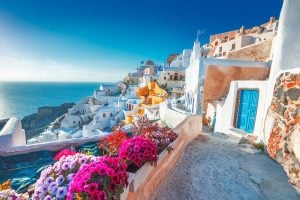 Santorini
Santorini 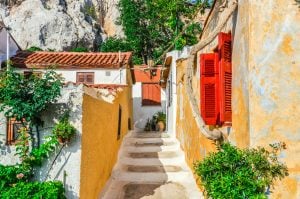 Athens
Athens 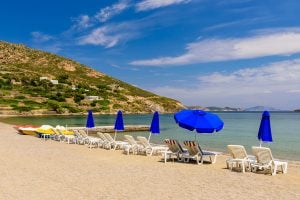 Patmos
Patmos  Istanbul
Istanbul 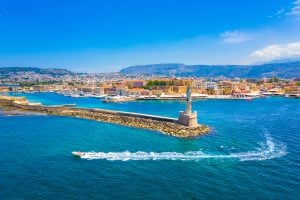 Crete
Crete 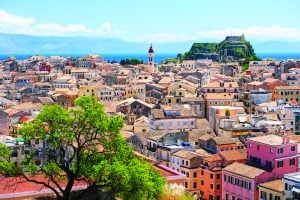 Corfu
Corfu 






 Deutschland (€)
Deutschland (€)
 Turkey (€)
Turkey (€)
